
此系列课程是为了建立网络社会学研究之基础,也是面对未来”平台社会"的理论实践之预习。预计规划六次系列:网络社会的崛起与智能城市;认同的力量;从文化研究到软体研究;黑客文化与新社会运动;空间政治─演算学;平台社会。综合演讲课、讨论课进行,课后纪要可出版具深度反思的网络社会学读本。 首次短课程目的有二:一是培养参与第三次网络社会年会"智慧城网"讨论的理论准备;二来能够深化发展淘宝村初期研究与撰写。以讨论课(seminar)形式展开。参与同学必须投入文本阅读与报告,整理课程演讲与讨论纪要。读本以Manuel Castells的网络社会学三部曲首部为主,延伸重要的阅读与参考书目。 关键词:马克思主义的城市研究 网络社会 网络国家 网络经济 网络劳工 智能城市 都市网络 淘宝村
一、导论:我们需要什么样的网络社会学?
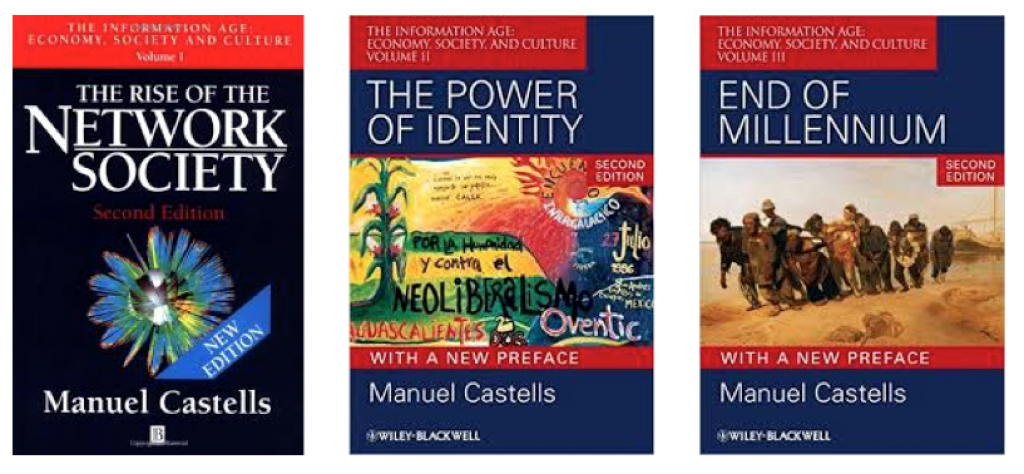
11/2 pm 7~9 required
Susser, Ida (2002) “Manuel Castells: Conceptualizing the City in the Information Age”, in Ida Susser ed.Cities and Social Theory, Oxford: Blackwell, pp.1-12.(中译,二十一世纪的都市社会学,城市设计学报);2017年新美术。
黄孙权:我们需要什么样的网络社会研究, 2017新美术
recommand
Doren Massey, JOhn Allen, Steve Pile edited. 认识城市第一册:城市世界,(understanding cities vol.1 city worlds),2009,台北:群学出版社(三册都很精采)
夏铸九:网络社会与信息化城市 讲座系列 http://caa-ins.org/archives/141
二、基础:马克思主义的城市研究
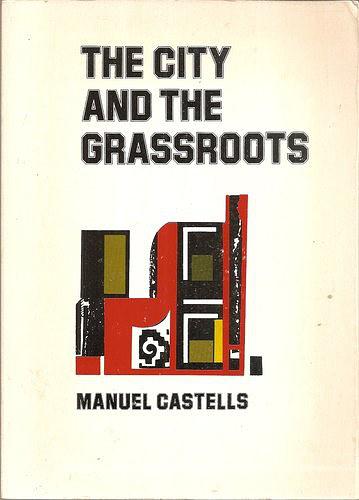
11/4 pm 7~9 required
Manuel Castells, “afterword 1975”, in The urban Question: A Marxist Apporach, p437-471(有中译)
Manuel Castells,(1983)”A Cross-Culture Theory of Urban Social Change”, in The City and the Grassroots, Cal: University of California Press. Pp.289-336(有中译,陈梧译,〈一个跨文化的都市社会变迁理论〉,收于夏铸九、王志宏编译,《空间的文化形式与社会理论读本》,pp.223- 300 ,台北:明文书局)
Manuel Castells,(1983)”General Methodogical Issues”, in The City and the Grassroots, Cal: University of California Press. Pp.339-343.(有中译)
recommand
Ira katznelson (1993) “Marxism and the City?” in Marxism and the City. pp.1-42
Allen J. Scott(1982) 〈社会的空间基础之论述的意义社会起源〉, 空间的文化形式与社会理论读本。pp1-18.
Manuel Castells & Marti Ince(2004), Conversations with Manuel Castells, Polity
三、网络社会崛起:IT产业,全球化与网络经济兴起
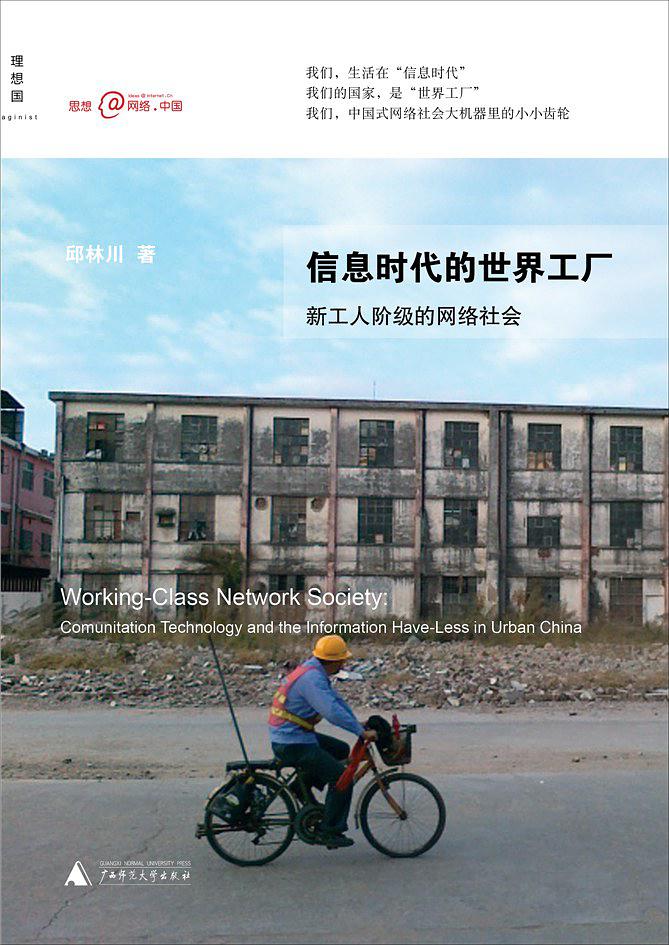
11/7 pm 2~5 required
ManuelCastells, “prologus: the net and the self”, The rise of Network Society. p1-25 (有中译)
Maneul Castells, 1,2,3 chapter in The rise of Network Society. p28-215(有中译)
recommand
Castells, M. (2000). Toward a Sociology of the Network Society. Contemporary Sociology, 29(5), 693. doi:10.2307/2655234
Castells, M. (2002). Local and Global: Cities in the Network Society. Tijdschrift Voor Economische En Sociale Geografie, 93(5), 548–558. doi:10.1111/1467-9663.00225
邱林川(2015),信息时代的世界工厂
沃勒斯坦(2013),现代世界体系(全四卷)
沃勒斯坦(2003), 所知世界的终结:二十一世纪的社会科学
陈东升(2008), 积体网路:台湾高科技产业的社会学分析(增订版)
Saskia Sassen(2001), The global city.
四、网络社会崛起:工作、文化、流动空间与无时间的时间
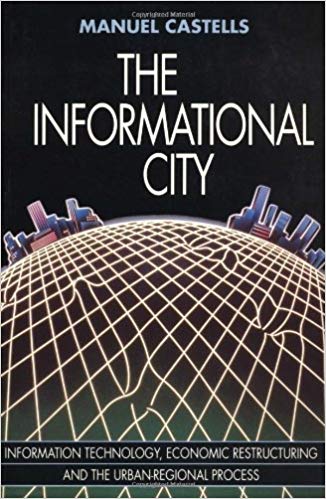
11/9 pm 7~9 required
Manuel Castells(2000), chapter 4,5,6, conclusiion, The rise of Network Society.
Manuel Castells(1989) ,”Conclusion:The Reconstruction of social meaing in the space of flows", The Information city: Information technology, economic Resturcturing and the urban-regional process, Blackwell, pp348-53(有中译)
recommand
邱林川 (2016) ,工人阶级网络社会
韩炳哲(2015), 倦怠社会, 台北:大块文化
Nick SRNICEK(2015), Inventing the Future: Postcapitalism and a World Without Work, Verso
五、智能城市
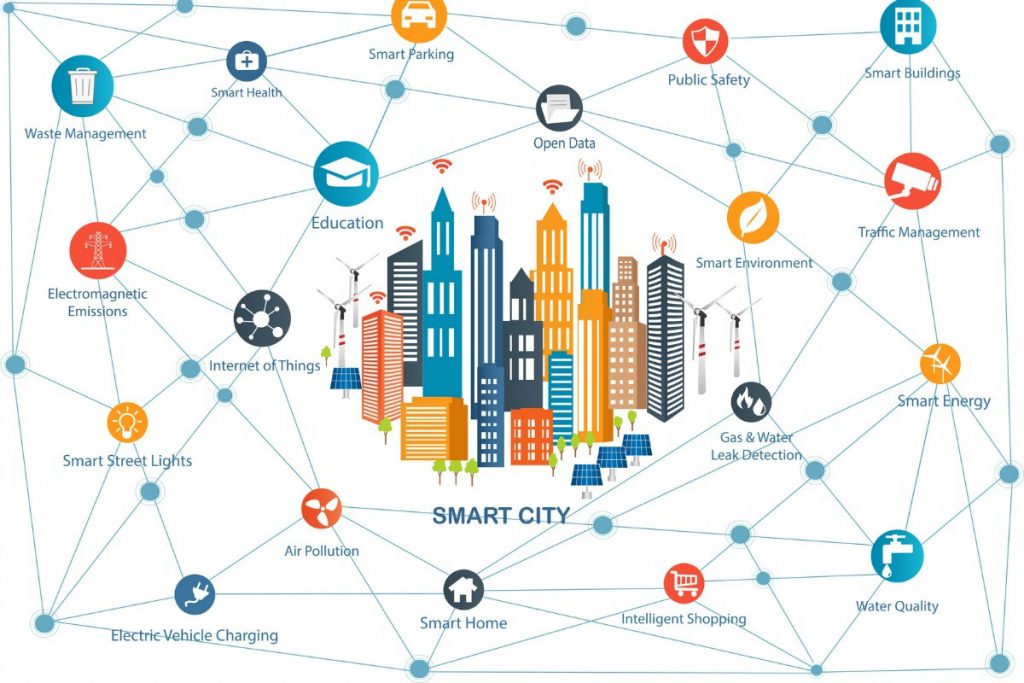
11/11,13 pm 2~5 required
Shelton, T., Zook, M., & Wiig, A. (2014). The “actually existing smart city.” Cambridge Journal of Regions, Economy and Society, 8(1), 13–25. doi:10.1093/cjres/rsu026
Hollands, R. G. (2014). Critical interventions into the corporate smart city. Cambridge Journal of Regions, Economy and Society, 8(1), 61–77. doi:10.1093/cjres/rsu011
Rama Krishna Reddy Kummithaa, Nathalie Crutzen(2017), ”How do we understand smart cities? An evolutionary perspective”,Cities 67:43-52
recommand
Andrea Caragliu, Chiara Del Bo & Peter Nijkamp (2011): Smart Cities in Europe, Journal of Urban Technology, 18:2, 65-82
Chourabi, H., Nam, T., Walker, S., Gil-Garcia, J. R., Mellouli, S., Nahon, K., … Scholl, H. J. (2012). Understanding Smart Cities: An Integrative Framework. 2012 45th Hawaii International Conference on System Sciences. doi:10.1109/hicss.2012.615
Adam Greenfield, Againsgt the Smart City
Mark Shepard edited (2011), Sentient City Ubiquitous Computing, Architecture, and the Future of Urban Space, MIT press
Paskaleva, K. A. (2011). The smart city: A nexus for open innovation? Intelligent Buildings International, 3(3), 153–171. doi:10.1080/17508975.2011.586672
case study
伦敦智慧城市 Citymapper Transit Navigation ,medium上的专页)
六、第一阶段淘宝村研究写作计划
11/1 下午2~5 写作讨论一 11/8 下午2~5 写作讨论二 11/12下午2~5 写作讨论三
